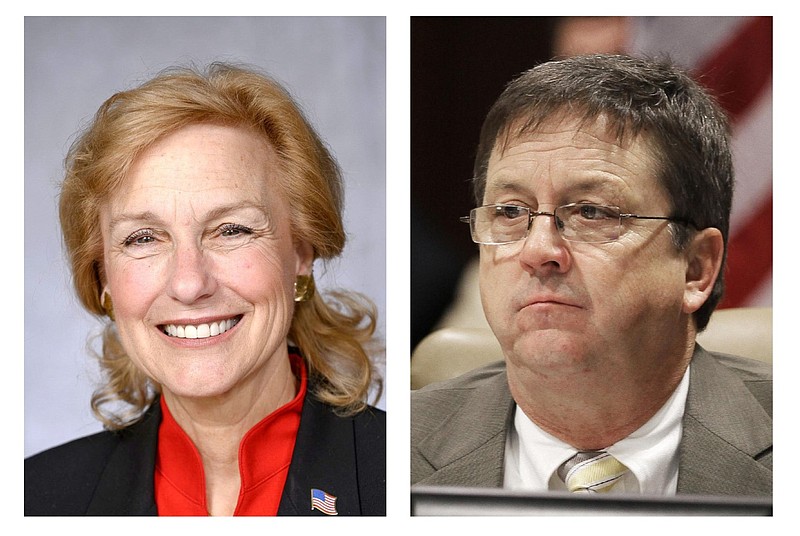An amendment narrowing the scope of a bill that would allow local governments to discuss economic development projects in closed meetings gained the favor of the Arkansas Freedom of Information Act Task Force on Friday.
House Bill 1280, by Rep. Delia Haak, R-Gentry, would amend the state open meetings law to allow a municipality's consideration in executive session of an economic development project that falls under the Local Job Creation, Job Expansion, and Economic Development Act of 2017, and would permit the governing body's attorney to attend those closed sessions.
Currently, state law allows for those governing bodies to meet privately for discussions pertaining to a particular employee or to limited security matters.
Proponents of HB1280 argue that Arkansas' strong open meetings law causes it to lose negotiating power and economic opportunity when companies looking to locate in its municipalities don't want their preliminary discussions to be made public.
An earlier version of the bill would have allowed for private discussion of not only economic development projects under the 2017 job creation law but also for any other economic development project or investment opportunity. The task force declined to endorse the original legislation in January.
The amended bill also requires the governing body to provide an oral summary of what took place during the executive session afterward, a provision that some task force members said could help with transparency. Other task force members and open-government advocates continued to question the value of holding economic development discussions in private. The result of the debate was a split voice vote by the task force.
"This sort of brings it actually more out in the open rather than, as we know what's occurring, which is the mayor or the city director or whoever goes and talks individually. I would rather have that discussion occur between the entire City Council and then have a report on it," task force member John Tull said.
The Arkansas Press Association's leadership remained opposed to the bill as amended.
"This creates a whole new class of executive sessions," said Rusty Turner, president of the board of directors of the Arkansas Press Association and editor of the Northwest Arkansas Democrat-Gazette. "Whether or not the vote is taken in public, decisions would be made in private on policy and how money would be spent. ... We've been dealing with this law for 50 years, and plenty of economic development projects have been successfully brought forward in the past."
In other business Friday, the task force declined to endorse Senate Bill 355 by Sen. Larry Teague, D-Nashville, which would allow the names of lottery winners who take home more than $500,000 to remain exempt from public disclosure for three years. The names of winners who are politicians would be allowed to remain confidential for six months under the bill.
Teague said the legislation is intended to give winners time to get their affairs in order and ensure the safety of their families, while the Arkansas Press Association's communications director, Aaron Sadler, said it would hurt the lottery's marketing efforts and leave the system open to corruption.
The task force did not take a position on a similar bill during the 2019 session that ultimately did not become law, task force member Jeff Hankins said.
Teague said he planned to present the bill in committee anyway. The task force is a recommending body.
